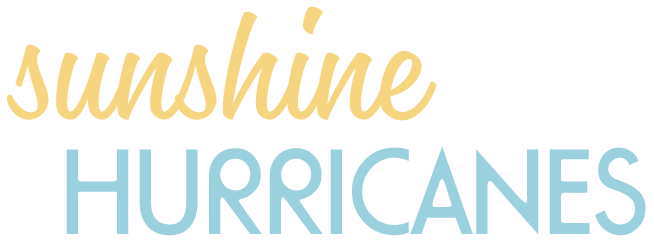Hi! I’m Alene from Integrated Learning Strategies, and I’m really excited to be guest posting today about my favorite apps for learning disabilities. Since I began working with children more than 20 years ago, the number of children with learning challenges and learning disabilities has not only increased, but the issues they face have become harder to remedy. Luckily, with all the amazing improvements in technology, there are so many great resources, intervention programs and learning tools to help these kids excel and reach their potential.
I can’t tell you how many times I hear the frustrations of parents who tell me “It’s like my child doesn’t hear me. They constantly say ‘huh?’ or ‘what?’” Or, I find parents are worried about their child’s attention and focus in class, their communication skills, self-confidence, retention of information, and now sensory issues that are causing kids to be sensitive to light, sound, textures and taste.
All of these concerns are leading to learning challenges in the classroom. For those who may have an official diagnosis of ADHD, Autism, Dyslexia or Sensory Processing Disorders, it can be especially difficult for parents to find the right tools to help their child at home and at school.
What’s great about all the recent advancements in technology is that we now have amazing apps for learning disabilities that were not available when my kids were young. And, not only are they helpful for parents, but kids today think the iPad or Android are “cool techy devices” that everyone wants so those children that need help aren’t labeled or thought of as “different.” This can be a huge boost to your child’s self-esteem because all their friends have a device where they play games and use apps for learning. No one knows the difference, but you!
Learning Tips
Before we talk about some of the best learning disability apps I’ve come across for children with learning challenges, I want encourage you to also keep your kids moving throughout the day at home and at school. Too much screen time can be counterproductive for your child. The best “medication” for your child is a mixture of movement (child play) as well as engaging them in apps for learning. Physical literacy and movement helps regulate your child’s emotions, reduces anxiety and helps them focus and attend better in school. The combination of the two will help your child improve in all areas of learning.
You will also want your child turn off their screens at least one hour before bedtime. Phycologists have said the light from your child’s devices can actually prevent your child from getting a good night sleep so they aren’t at their top performance the next day when they get to school.
Apps for Learning Disabilities
Now for the good stuff! Here are several apps for learning disabilities that I have researched and tested. The most important thing to remember is not every app is equal. Not every child struggles with the same issue so what works for one child might not work for another. You first have to assess your child and ask yourself what they struggle with.
For instance, if your child struggles with dyslexia, they may not need the same apps as a child who has Autism. A child with sensory processing issues may not need an app for reading. However, sometimes learning challenges tend to overlap so there is not any right or wrong answer. What you really want is several apps that help your child in different areas so they get a holistic learning opportunity. You will see how beneficial many of these apps are no matter what learning challenge your child is struggling with.
While there are many apps for learning disabilities out there that cost quite a hefty price, the ones I chose are either free or don’t break the pocket book.
Language Development
- Sounding Board Language (free): As you may know, children with Autism, ADHD and Sensory Processing Disorders may have a difficult time communicating and may even be non-verbal. You can use this app to discover your child’s wants and needs, especially if they can’t say what they want. The app already has several categories to choose from, but you can create your own and even upload your own pictures. For instance, if your child wants to go to the park, you can upload a picture of your local park so when you show them the picture they can identify that is where they want to go.
- MyTalk Mobile (free): There is a free version of this app available as well as one for purchase, but you will have to create a username and password before you begin. This is another great app if your child struggles with language and communicating. It allows your child to select and point to what they want through pictures. If they want a snack, they can point to it or if they want to know what time it is, they can point to the clock on the app. This greatly reduces meltdowns and frustrations children with learning disabilities have when communicating with parents and teachers.
Speech Delays
- Puppet Pals Theatre Game (free): This is a fun app for kids with speech delays. The app is your child’s own “theatre” where they get to pick characters and scenery. When they have chosen their characters, they can record their voice for the characters. This is a great opportunity for children to hear their own voice and how they are pronouncing words and sounds. Help them record the correct pronunciations so they can hear the correct way to say words and letters.
- NACD Apraxia Apps ($4.99): The National Association for Child Development (NACD) has amazing apps for children with learning disabilities and great resources for parents. They are by far some of my favorites. There are a total of four NACD Apraxia apps for kids who struggle with Apraxia or speech issues. The NACD has broken each app down for words, syllables and word endings. Each level provides motor planning exercises for speech and begins with easier speech patterns then progresses to harder sequences with random words that are more challenging.
Memory and Cognition Development
- NACD Cognition Coach ($4.99): The NACD just released two brand new apps customized for children with autism, Down syndrome, ADD and other children with special needs. I am already loving these new apps for my students! This app begins with an evaluation of your child with a coach to help on a daily basis. It provides games for physical movement (occupational therapy), short-term and working memory, behavioral therapy, and it teaches them how to identify pictures, process information, and problem solve. Both apps have different levels for toddlers and works up to levels for 5-year-old children.
Executive Functioning and Visual Perception
- MatrixGame 1 and MatrixGame 3 (free): MatrixGame 1 and 3 are for beginners and children who are a little older. Both are great for helping children with Executive Functioning Disorders, Dyslexia, and Visual Processing Disorders. If your child struggles with planning, organization, memory and time management as well as tracking words on a page, this app is a great start. It may seem simple to you, but your child might find it difficult as they have to line up the correct shape with its match inside the graph. This app will help organize your child’s brain for higher functioning concepts such as reading (tracking words), organization and retention.
Sensory Processing
- Dropophone (free): Kids with Sensory Processing Disorders need a lot of sensory stimulation (anything using their five senses) to help calm their bodies and their minds. If your child is a sensory seeker, meaning they need a lot of movement, light, sound and texture to function, this app is great. The app provides colorful raindrops with music where kids can tap on the raindrops and they make sounds. There is also a timer that ticks, which creates repetitive sound sensory kids’ need to improve their functionality. Because it is colorful, the raindrops make sounds, and the music is calming, it helps sensory children feel more calm and can help improve focus and behavior.
- Modus (free): I love the Modus app because it is very simple, yet effective for sensory kids. If your child is more sensory sensitive instead of being a sensory seeker, it probably means they are bothered by loud noises, large crowds, certain textures or clothing and smells. The only thing this app provides is calming music and a lovely rainbow of colors. Why is this important? If your child has behavior issues or meltdowns when you go to the mall, amusement parks or busy restaurants this app can be very beneficial. It provides them with the right sensory input they need to calm their anxiety and anxiousness. They can simply put in their headphones and play this app at any location. It doesn’t look weird because most kids today listen to music on their iPods so they appear to be listening to Taylor Swift when really they are listening to music to calm their over sensitivity.
- Going Places (free): Going Places can be an app for both sensory kids and children with Autism. As we talked about above, running errands or trying new places can be overwhelming and scary for these types of children. To prepare them for a new experience, you can use this app to help explain to your child where you are going and what you will be doing. This can help prevent anxiety and will give them an idea of what to expect before you leave the house.
- Glow Draw (free): Glow draw is another great app for both sensory kids and autistic children. The app allows your child to draw anything they want with florescent lights on a black screen. The florescent light provides them with sensory stimulation and it also gives them a chance to fine tune their fine motor skills needed for writing.
Emotions
- AutismXpress (free): When the Inside Out movie came out, it brought up a lot of questions about how emotions affect your child’s brain. This app helps not only autistic children share their emotions, but also children with ADHD, processing disorders and other learning challenges. Because it can be hard for children to express their emotions and they may struggle with language, this gives them a chance to select the emotion they are feeling so you know how to help.
Organization and Planning
- Autism Timer ($2.99): I love this app for both autistic children and sensory processing children because it is colorful and it helps their organization and planning skills. Sometimes these children just can’t sit still or focus in class or they can’t wait for an activity to end, probably because their body and their brain is telling them that the activity is too painful, or too much for their system to handle. The timer helps children know how much longer they have for an activity. For instance, if you are trying to create a better meal experience at home, set the timer for the amount of time it takes to eat their chicken, then let them have a break. Set the timer for their break and once it stops, they have to come back and eat their peas. It also works in the classroom for story time or test-taking.
- myHomework (free): This app works better for older children with ADHD and other learning disorders, but it can help keep them organized with their assignments. The app allows your child to enter their subjects, assignments and keeps track of what they need to complete. Most children with learning challenges tend to struggle with retention so when they enter their homework in their phone, both you and your child can track the tasks they need to complete.
Auditory Processing
- StoryBuilder ($5.99): StoryBuilder is geared toward children with Auditory Processing Disorders, which means kids that have a difficult time knowing the difference between sounds in words. This may be why they say “huh” or “what” because they aren’t processing what you are saying, which is often mistaken for as a hearing problem. StoryBuilder is in story format and allows your child to record their voice as they read the phrase. The app repeats questions, plays answers and reads the full stories. When your child participates in these reading exercises, it helps them retain the information they read and will also improve how they process instructions and directions.
Common Core Math
- Todo Math (free): Many parents and students are now struggling with Common Core Math, especially those with learning challenges. This app is simple, but provides your child with visual items to help them see how objects correlate with numbers. With this app, your child is first introduced to a number. When they have the number, your child can touch one side of the screen for visualizing the number and then the opposite side of the screen for tracing the number. This will help them get a visual of the number as well as retain what the number value is.
I hope you enjoy and love these apps as much as I do!
Integrated Learning Strategies is a Utah-based center dedicated to helping mainstream children and children with learning disabilities achieve academic success. Our services provide kids with non-traditional tutoring programs within the Davis County, Kaysville, Layton, Syracuse, Farmington, and Centerville areas. Areas to find Integrated Learning Strategies include: Reading tutors in Kaysville, Math tutors in Kaysville, Common Core Tutors in Kaysville, Tutors in Utah, Utah Tutoring Programs

























[…] 15 Kids Apps for Learning Disabilities […]